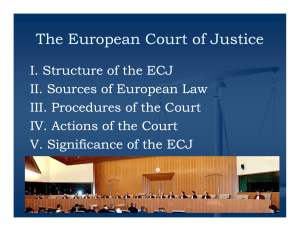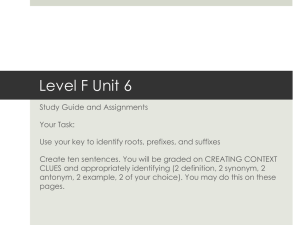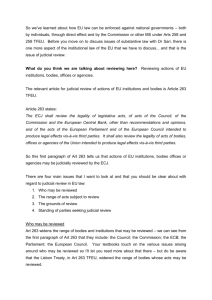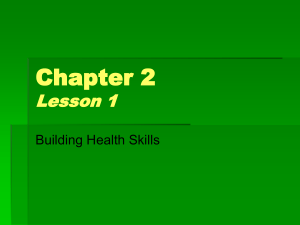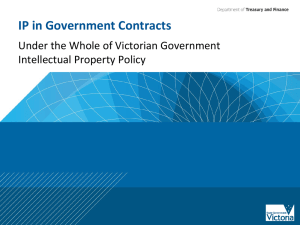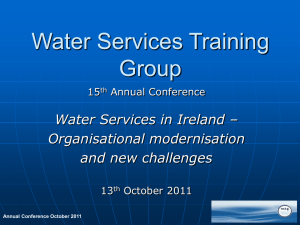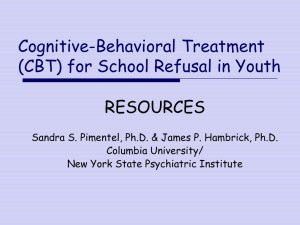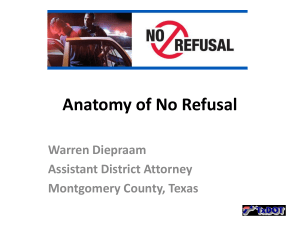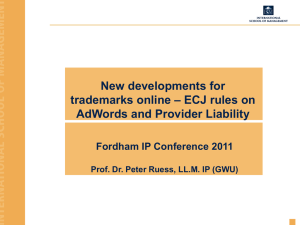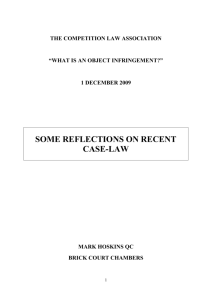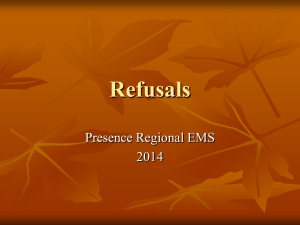Patents and Competition Law
advertisement
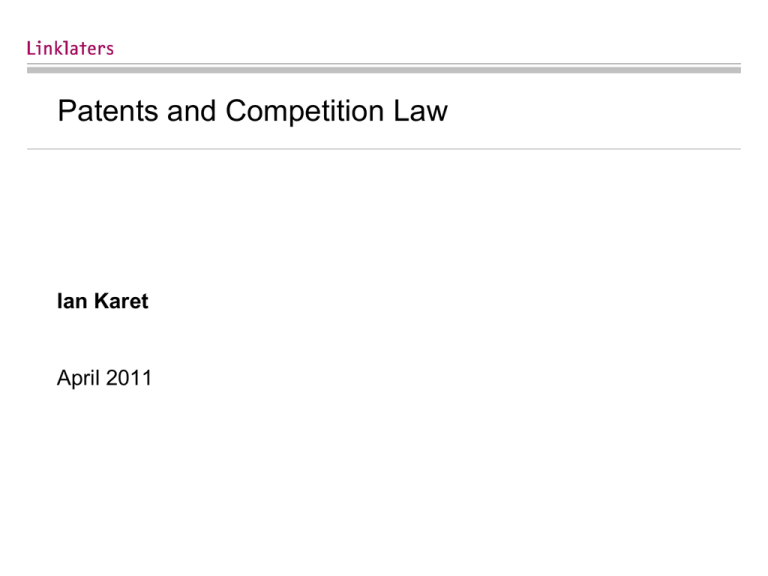
Patents and Competition Law Ian Karet April 2011 Tensions - IP rights may - encourage innovation - reward enterprise - increase access to technology and/or - restrain competition and market entry - reward needlessly. - Often national in scope; competition rules are pan-EC. 1 Abuse - UK patent litigation - strong link between infringement and validity – (Coin Controls, CA) - in 19 months to mid 2010 all UK courts heard 47 cases covering 61 patents - 38% valid - ordering of issues. - Theoretical and practical interest? 2 Volvo v Veng [1988] ECR 6211 - Veng imported into the UK unlicensed spare parts for Volvo cars. Volvo sued. ECJ held that since the right to be the only maker was the specific subject matter of the right, a refusal could not be abusive: “Refusal to grant a licence, even if it is the act of an undertaking holding a dominant position, cannot itself constitute abuse of a dominant position”. - However there might be an abuse if: - refusal was arbitrary - spare part prices were fixed too high - models were changed without spares for old. 3 ITT Promedia [1988] ECR II-2937, CFI - Access to courts is a fundamental right. - Thus abuse will be wholly exceptional. - It may be an abuse where proceedings not reasonably considered on attempt to assert rights and can only serve to harass/eliminate competition. - Acting reasonably in defence or to enforce a right is not abusive; acting solely to harass may be abusive. 4 Pitney Bowes v Francotyp [1990] 3CMLR 466 - Application to Patents Court strike out defences under A82. - Allegations that might work under A82 included - charging unfairly high prices; charging smaller companies more; and discriminating against the home market. - But allegations that would not included – threatening to bring proceedings on a range of patents; cross-licensing with a main competition; pursuing action in order to force D into taking a licence; refusing to grant licences on similar terms as granted to others. - Some activities might constitute he tort of malicious prosecution. 5 Magill [1995] ECR I-74 - TV companies published daily TV schedules and their own weekly listing magazines. M wanted to publish a weekly magazine. - Compulsory licence of copyright ordered where failure to license inhibited the development of a new market in weekly listings products. Exercise of IP rights could exceptionally be abusive. - Existence of (i) no substitute source for the information and (ii) a potential secondary market seems crucial. No objective justification for the refusal. 6 Bronner v Mediaprint [1998] ECR I-7791 - Essential facility – facility or infrastructure, without access to which competitors cannot provide service to their customers. - Application by one newspaper company for access to distribution network of another – failed because this was not the only way the newcomer could gain access and was objectively justified. - Essential facilities and IP considered in Attheraces v BHB, 2007, CA 7 IMS Health C-410/01, 2004 - © in 1860 Brick Structure for collecting pharmaceutical sales data. This had became industry standard. Commission ordered IMS to grant copyright licence to competitor NDC to enable them to establish competing product. CFI halted order. - Grounds for compulsory licensing as in Magill: - Licensee intends to offer new products or services not offered by IPR - Refusal not objectively justified - Refusal reserves the IP owner market for supply of data thus eliminating competition. 8 Microsoft September 2007, CFI - ECJ confirmed IMS/Magill principles, adding: - principal market on which there is dominance may be hypothetical - New product test may be loosely applied: any product adding value over Microsoft’s own products. “There is only one company that will have to change its illegal behaviour as a result of this ruling, and that is Microsoft….This was an exception—the kind of superdominance of a Microsoft is rare." Neelie Kroes, European Commissioner for Competition 9 Glaxo v Dowelhurst [2000] FSR 371 - Allegation that concerted actions for infringement of TMs were illegitimate. - ToR could affect exercise of IP rights. - Allegation that claimants had joined together to disadvantage defendant was not fanciful. Pleadings amended. 10 Intel v Via [2003] FSR 12, 33 - V raised defences to patent infringement claims under A81 and 82. - A81 - licence already granted and offer of ‘asymmetric’ licence; A82 refusal to license. Defences struck out. - Appeal allowed. ECJ case law in development. A81 and 82 often raised issues of fact which were not suitable for summary trial. Magill was only general rule – exercise might exceptionally be abuse. - ECJ might move towards essential facilities doctrine. - Infringement and validity would determine scope of dispute over competition issues. ECJ reference might be required after validity. 11 AstraZeneca (2010) General Court - Losec basic patent expired 1999 - Annual sales at €6 billion - Alleged misrepresentations to secure SPCs - Withdrawal of capsules; replacement with tablets 12
